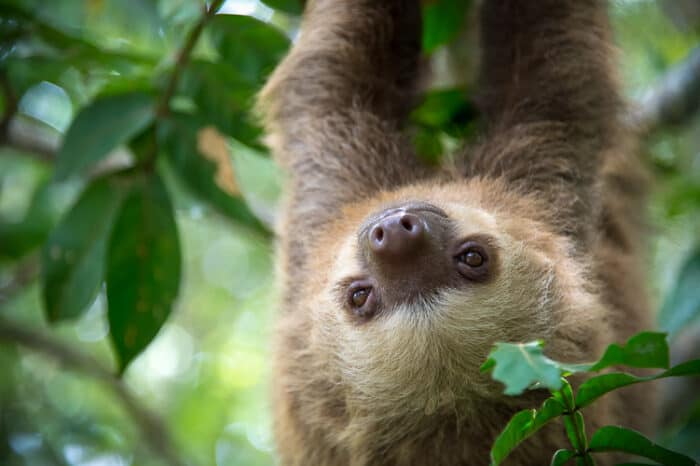Moving to Costa Rica is possible – and with our guide, you can start planning your move today. Costa Rica — a country with stunning beaches, abundant forests, and teeming wildlife. But what are the practicalities of moving to Costa Rica?

Visas and residency for moving to Costa Rica
Tourist Visas and Health Requirements
You can travel to Costa Rica without a tourist visa if you are a citizen of the US or certain other countries. This visa-free visit can be up to 90 days. Minors are required to have their own travel documents.
You may be a national of a country that requires a tourist visa. If so, you should apply in person to the Costa Rican consulate in your country of residence. You’ll need to provide a visa request letter detailing:
- Full name, nationality, passport number, and date and place of birth.
- Your home address, e-mail, and phone contact details.
- The purpose of your trip, the length of your trip, and when and where you intend to arrive.
- Your profession or occupation.
- The address where you plan to stay in Costa Rica.
You will also need:
- A completed official application form.
- Your passport, which has at least six months of validity.
- A complete photocopy of your passport.
- Reservation of travel and itinerary of your visit.
- Proof of economic status – funds of at least US $300 for your stay.
- Clean police records issued within the last six months.
- Color photo, passport size.
- Proof of legal status in your country of origin.
- Any additional documents that are required by your consulate.
Allow time for approval and processing of your visa, and be prepared to pay a fee of approximately US $32.
If you wish to stay in Costa Rica for longer than ninety days after moving to Costa Rica, you should establish residency. Once you begin your application process, you can get an extension of your stay.
Provisional Visas are available for students, volunteers, academics, or researchers. Your sponsor or your Costa Rican institution will generally apply for these.
Health Requirements when moving to Costa Rica
You will need proof of health insurance to cover Covid-19 for the length of your stay. For this, you need an electronic health pass QR code. For up-to-date information about immigration requirements related to Covid-19, check here.
Although the health system in Costa Rica is great, many people take out private healthcare for access to top medical professionals and peace of mind. International Insurance can provide you with quotes from the best health insurance companies to meet your needs.
If you are a citizen of or traveling from South America or sub-Saharan African countries, you need a Yellow Fever Vaccine. You’ll need this at least ten days before travel.
Work Visas
The government gives priority to its citizens, so it can be challenging to obtain a work visa in Costa Rica. Work permits come under a “special category” of immigration, and each of these has its own particular restrictions.
If you are in any of these categories and a local cannot fill the vacancy, you may be able to obtain a work permit. Categories for obtaining work permits are subject to change.
- Trans-frontier worker or transfer staff.
- An athlete, artist, or entertainer.
- Professional or technical worker.
- Maintenance and repair services.
- Domestic worker.
- Temporary worker.
If granted, your work visa is only valid for the length of your paid employment.
Some temporary residence permits have options to freelance or to manage a company (see below).
How to Obtain a Work Visa
First, you need to find an employer who wants to hire you. You then need to obtain a temporary residence permit. Once in the country, you and your employer can apply for a work visa from the Dirección General de Migración y Extranjería (Immigration Department).
You will have to supply supporting documentation, which you’ll need to obtain before traveling to Costa Rica. These documents have to be officially translated and notarized.
The application process takes between three and eight months and can be longer at times.

Becoming a Resident of Costa Rica
Types of Residency and Permits for moving to Costa Rica
Costa Rica offers many types of temporary residency permits. The most common are detailed below. If you are a Spanish citizen, you can apply for permanent residency immediately.
Temporary Pensionado (Retiree) Residency
- Valid for two years, renewable. (To renew, you must have lived in the country for at least four months per year.)
- Proof of income of US$ 1,000 per month from pension or retirement fund.
- Can’t work as an employee but can freelance or own a company and receive dividends.
- Must be in the country for at least one day a year.
- Can include spouses and dependents under 18 years old.
- Can apply for permanent residency after three years.
- Cost: USD $1,500 for applicant, USD $800 for spouse, and USD $500 per dependent child.
Temporary Rentista (Fixed Income) Residency
- Valid for two years, renewable. (To renew, you must have lived in the country for at least four months per year.)
- Either proof of deposit of USD$60,000 in a permitted bank. Withdrawals of USD$2,500 each month. You’ll need to do this on every renewal (two years) until an application for permanent residence.
- Or proof of income of USD$2,500 per month for two years. This is not employment income but is sourced from bank interests, annuities, or dividends.
- Can’t work as an employee, but can freelance or own a company and receive dividends.
- Must be in the country for at least one day a year.
- Can include spouse and dependents under 18 years old.
- Can apply for permanent residency after three years.
- Cost: USD$1,500 for the applicant, USD$800 for the spouse, and USD$500 per dependent child.
Temporary Investor Residency
- Valid for 2 years, renewable. (To renew, you must have lived in the country for at least four months per year.)
- Investment in business or property of at least USD$200,000.
- Can’t work as an employee but can freelance or own a company and receive dividends.
- Must be in the country for at least one day a year.
- Can include spouse and dependents under 18 years old.
- Can apply for permanent residency after three years.
- Cost: USD $1,800 for applicant, USD $800 for spouse, and USD $500 per dependent child.
Temporary Residence – Spouse of Costa Rican
- Valid for one year, renewable.
- Marriage certificate.
- Proof of marriage or cohabitation.
- Can work: employee or self-employed. Can own a company and receive dividends.
- Must be in the country for at least one day a year.
- Can apply for permanent residency after three years.
- Cost: USD $1,500 for applicant, USD $500 per dependent child.
Permanent Residence – Parent of Costa Rican (No Temporary Residence is Necessary)
- Your name must be on the child’s birth certificate.
- Can work as an employee or self-employed.
- You can own a company and receive dividends.
- Can include dependents under 18 years old who are not Costa Rican citizens.
- Cost: USD $1,500 for applicant, USD $800 for spouse, and USD $400 per dependent child.
Costa Rica Residency Requirements and Applications
- A completed official application form.
- Two recent passport-size photos.
- Registration payment(s).
- Fingerprint registration for every applicant over 12 years old.
- Proof of consular registration.
- Birth certificate issued by your country of origin, certified within six months of application.
- Clean criminal record covering the last three years and certified within six months of application.
- Certified photocopies of all passport pages.
- Where you are required to provide proof of income for your residence permit, you’ll have to have this documented and properly certified.
- Supportive documentation for spouse (marriage certificate) and any children applying (birth certificates).
An official translator must translate all documentation that is not in Spanish. All documents must be certified or apostilled by the Costa Rican Consulate and then by the Ministry of Foreign Affairs of Costa Rica.
You must submit the correct documentation or risk delaying your application or being rejected. We recommend that you get expert advice before applying.
Permanent Residency and Citizenship
After three years of a retiree, fixed income, or investment residency, you can apply for permanent residency in Costa Rica. This status change will allow you to earn money in the country. If you are a permanent resident, you must visit Costa Rica at least once every year.
A permanent residence permit is individual and does not include dependents. You must renew the permit every 5 years.
You can find details on Costa Rican citizenship here.

Moving to Costa Rica from the US
Ten Costa Rica consulates in the US will handle visa applications to start your process of moving to Costa Rica.
Moving to Costa Rica with your Goods and Pets
Customs duties for Costa Rica are from 1 — 15 % of the estimated value of the goods. However, if you wish to import your car, and it’s less than 3 years old, the tax is a whopping 52.29%!
Pets don’t need a microchip or quarantine, but you will need proof of vaccination.
For all aspects of moving to Costa Rica, speak to our experts and check our comprehensive moving abroad checklist.
Banking
There are both state-owned and private banks in Costa Rica. State-owned banks are more widely available, but private banks offer a more personalized service. State-run banks are not profit-generating, and the amount you deposit is insured with no set limit.
Your residency status will also limit the type of bank account you can have. To open an account, most banks will require you to attend in person with the necessary documentation. There are generally no fee charges to open an account, but you will have to place a minimum deposit.
If you are moving to Costa Rica, you’ll find that many banks will allow you to the bank in dual currencies. This can enable international transfers of funds from your home country.
Tax
Costa Rica is no longer listed as a tax haven. However, money not earned in Costa Rica is not taxed. You will still have to pay taxes on your income in your home country.
Property tax is low, sales tax is 13%, and corporation tax is around 30% for revenue over US$191,000.
If your residence status allows you to earn money in Costa Rica, your employment and non-employment income (like rental income) are taxable.
Where Should I be Based When Moving to Costa Rica?
Rental Properties
Central Valley
The Central Valley of Costa Rica is popular for Expats who want the advantages of the facilities of schools, hospitals, airports, and the like.
A two-bed rental property in San José will cost between US $500 – $900 per month, excluding the cost of utilities. Electricity costs are about the same as in the US; water and Wi-Fi are comparatively cheaper.
Other areas in the Central Valley are the suburbs of Escazú and Santa Ana. These are upmarket and attractive towns, attracting wealthy locals and Expats. A two-bed apartment in these areas can cost as much as US $1,800 per month.
Central Pacific Coast
The Central Pacific Coast is another popular area for Expats who want beachside living, access to national parks, and proximity to the capital.
Jaco is a town with a lot of activity, both during the day and during the night. A two-bed condo can cost US$1,500 per month.
Other popular areas on the Pacific Coast are towns in the Guanacaste Region in the northwest of the country. This area is hotter and drier than other parts of Costa Rica. Tamarindo is a popular town for Expats who want to live on the coast. Rentals here are also expensive. They range from US$100,000 to US$500,000.
In cheaper areas, such as Playas del Coco, a two-bed condo can cost US$500 per month or more.
Southern Pacific Coast
The Southern Pacific Coast, or the Southern Zone, is quieter and less developed. This area is popular with Expats who appreciate getting back to nature and who aren’t bothered about having a lot of amenities nearby. Rentals in small coastal towns (Dominical, Ojochal, Uvita) can cost US$500 a month.
Caribbean Coast
Limon on the Caribbean Coast is also not over-developed and is close to nature.
In many of the areas outside of the capital, St Jose, you’ll find rental properties for the vacation market rather than the long term. You may find you can get a good deal if you are planning to live in a tourist area during the wet season.
Furnished or Unfurnished
Precisely what your rental includes may differ from your expectations. The term “furnished” in Costa Rica may refer to whether a fridge or oven is provided. Air conditioning is generally not centralized but only installed in certain rooms on the property. In addition, you may find that a hot water system is not available in rural areas.
As in many other countries, long-term rentals are often available without furniture.

Purchasing a Property when you move to Costa Rica
Purchasing a property in Costa Rica is a fairly straightforward process. People who don’t have residency can buy real estate in their own name or the name of their company. Many purchasers choose to purchase a property by forming a corporation, as there are tax and inheritance benefits from doing so.
Beachfront Properties — Fee Simple or Concession?
If you purchase a beachfront property that is fee-simple, it means you can use the property as you wish. You can improve it, rent it, and sell it. Foreigners can own a fee-simple beachfront property as well as Costa Ricans.
Beachfront properties that are classed as concession means there’s a lease on the property for some time. Foreigners are usually only allowed to have minority ownership of a concession property.
When considering buying beachfront property, carefully check the classification of that property and what your rights are.
Property Taxes and Other Fees
The annual property tax is 0.25% of the value of the property. For properties valued over US$234,000, there is a sliding scale luxury tax capped at 0.55%.
If you purchase a condo or a property in a gated community, management fees will apply. These fees cover the security and maintenance of public areas. They typically range from US$20 — $100 per month.
The Property Purchase Process
- Begin your search for a property — make sure you use reputable real estate agents.
- Find a recommended attorney.
- (If your attorney is also a notary public, they can also register your purchase in the public registry.)
- Find your property, do all the checks, and check the property title search.
- Agree on an offer and sign the purchase-sale agreement. You then have two weeks to pay the deposit of 10% into a government-registered escrow account.
- The closing period is 30 to 60 days from the agreement. Ensure your funds are in place in good time.
- Arrange to register your property either in your name or the name of your corporation.
Financing a property in Costa Rica
Bank financing is not standard in Costa Rica and can be expensive. If you need to find finance, it’s advisable to use your home bank or another privately organized financing.
Pura Vida!
You will hear about Pura Vida in Costa Rica a lot. It translates as “Pure Life.” Costa Ricans use the word “Pura Vida” to say “hello,” “goodbye,” and “everything is awesome.” So practice saying it while you get started on your plan.
Your very first step is your visa and we recommend using a quality Costa Rica Immigration Lawyer to help you through the process.








Hi Mr Johnston I want to move. to Rica from USA but have my Russian fiance and her daughter that I want to bring a little later What problems will I face to have them stay in Costa we plan on being married also can we survive on 1700 dollars a month what I make from SSI and a small pension Thank you for any help God bless David
Hi David. Many of Costa Rica’s visa and residency programs allow you to include a spouse and dependent children. All the best, Alastair